In a world where a lush and vibrant mane is often considered a symbol of vitality and beauty, the quest for luscious locks continues to captivate many. Amidst the plethora of hair care products and remedies, natural solutions have gained popularity, and one intriguing contender in the realm of natural hair care is the lion's mane mushroom (Hericium erinaceus).
Here at Remeday, our mission is to provide our readers with well-researched, unbiased information about the potential benefits and side effects of medicinal mushrooms. In fact, we don't directly manufacture or sell any mushroom products.
In this article, we delve into the question of whether lion's mane mushrooms can contribute to hair growth or, conversely, have any potential links to hair loss.
Let's dive in!
What are lion's mane mushrooms?
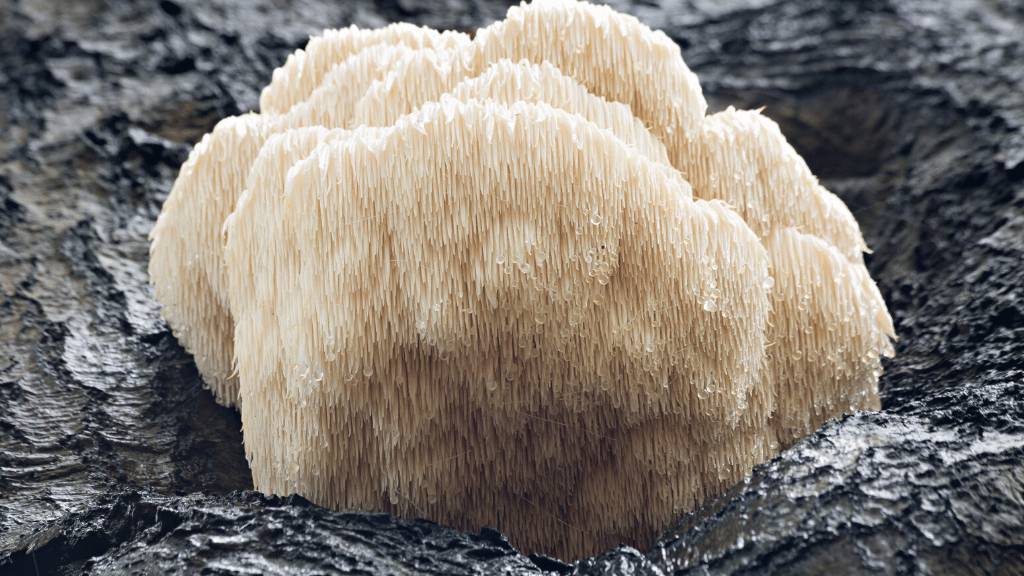
Before we explore the potential effects of lion's mane mushrooms on hair health, let's take a moment to familiarize ourselves with this unique fungus. Known for its shaggy appearance resembling a lion's mane, Hericium erinaceus is a type of mushroom that has been used in traditional medicine and culinary practices for centuries.
It typically grows on hardwood trees and is native to North America, Europe, and parts of Asia.
In various cultures, lion's mane mushrooms have been valued not only for their culinary appeal but also for their potential medicinal properties.
These mushrooms are rich in bioactive compounds, including beta-glucans, hericenones, and erinacines, which have captured the interest of researchers and health enthusiasts alike. While lion's mane has been studied primarily for its potential cognitive benefits, its effects on hair health remain a topic of growing curiosity.
Understanding the science behind hair growth and hair loss
To understand the potential impact of lion's mane mushrooms on hair, it's essential to grasp the fundamentals of hair growth and the factors influencing hair loss. Human hair undergoes a continuous cycle of growth, rest, and shedding.
The hair growth cycle is divided into three phases
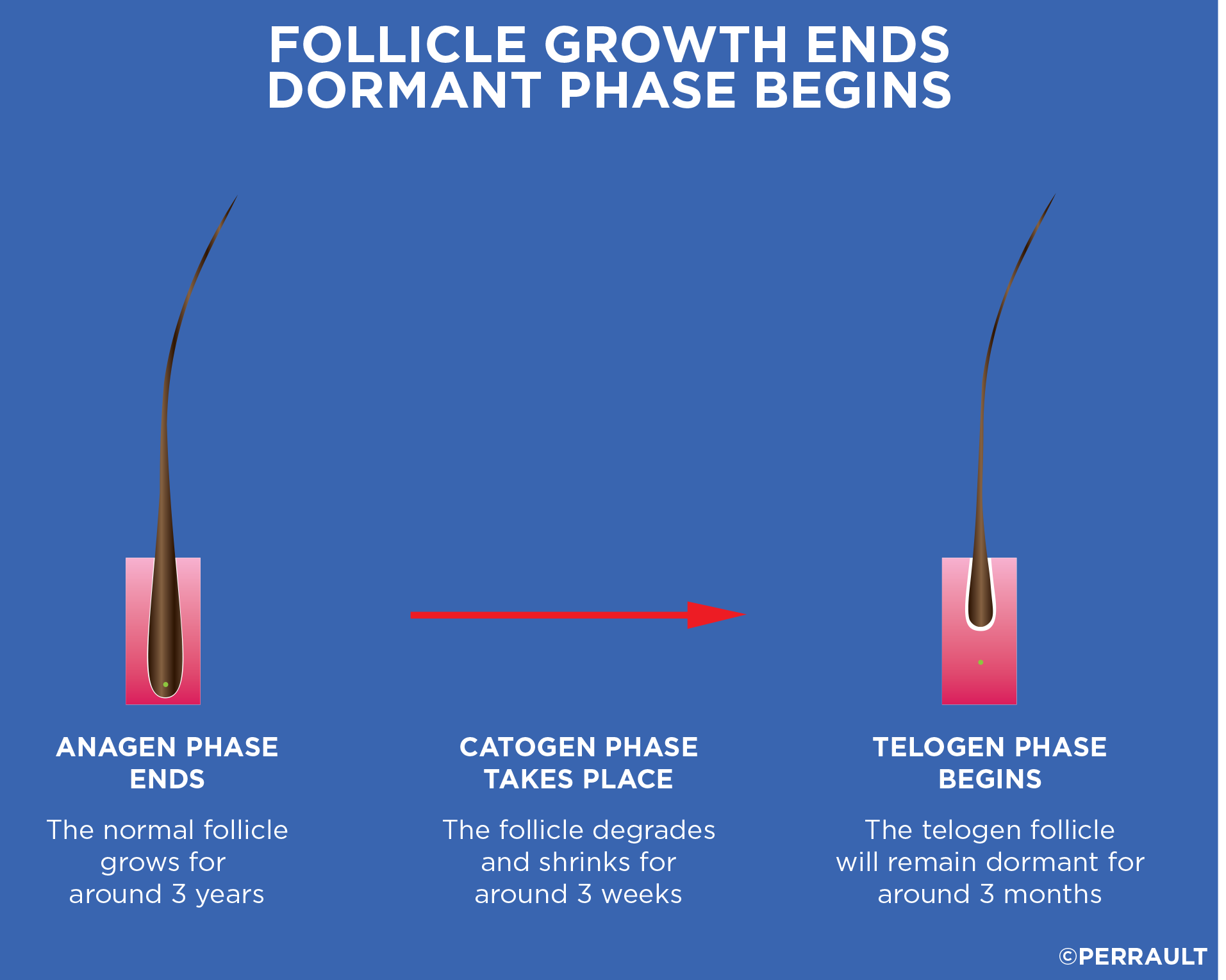
- Anagen Phase: This is the active growth phase, during which hair follicles produce new hair. The duration of this phase can vary from person to person, influencing the length of their hair.
- Catagen Phase: In this transitional phase, hair growth slows down, and the hair follicle shrinks. It lasts for a relatively short period.
- Telogen Phase: The resting phase, where hair remains in the follicle but is no longer actively growing. Eventually, the hair is shed, and a new hair begins the anagen phase.
Several factors can influence hair growth and hair loss, including genetics, hormonal changes, nutritional deficiencies, and lifestyle factors such as stress and diet.
While some forms of hair loss are natural and age-related, conditions like androgenetic alopecia (male and female pattern baldness) and alopecia areata can lead to significant hair thinning or loss.
Alright! Now that we understand the basics of the hair cycle, we'll explore whether lion's mane mushrooms hold any promise in addressing these factors and potentially contributing to healthier hair.
It's important to note that while natural remedies like lion's mane mushrooms are of interest, they should be considered complementary to a holistic approach to hair care (and, let's be honest, should not replace professional medical advice!)
How Lion's Mane Can Help Hair Growth
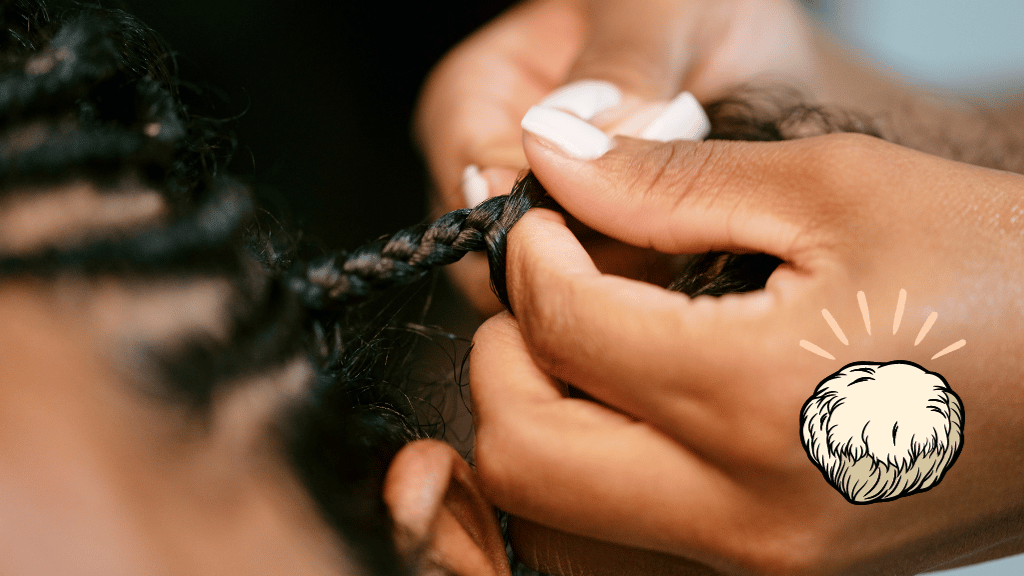
Lion's mane mushrooms have been gaining attention for their potential to support various aspects of health, including cognitive function, immune system strength, and even hair health.
While the research on the specific impact of lion's mane mushrooms on hair is still in its infancy, there are intriguing mechanisms and preliminary studies that merit exploration.
1. Anti-Inflammatory Properties
One potential way lion's mane mushrooms may benefit hair health is through their anti-inflammatory properties. Chronic inflammation is known to play a role in various health conditions, including those that affect hair follicles. Inflammation can disrupt the hair growth cycle and contribute to hair loss. Lion's mane mushrooms contain compounds like beta-glucans and polysaccharides, which have demonstrated anti-inflammatory effects in some studies. Reducing inflammation in the scalp and hair follicles may create a more favorable environment for healthy hair growth.
2. Nerve Growth Factors (NGFs)
Another area of interest is the potential impact of lion's mane mushrooms on nerve growth factors (NGFs). NGFs are proteins that play a crucial role in the development, maintenance, and survival of nerve cells. They are also involved in the hair growth cycle as they promote the growth and health of hair follicles.
Lion's mane mushrooms contain unique compounds called erinacines and hericenones, which have been studied for their potential to stimulate NGF production.
While much of this research has focused on cognitive benefits, it's possible that increased NGF levels could have indirect positive effects on hair follicles by supporting their overall health and vitality.
3. Limited Scientific Research
Despite the intriguing potential mechanisms outlined above, it's essential to acknowledge that the scientific research specifically exploring the effects of lion's mane mushrooms on hair health is limited. Most studies have concentrated on other aspects of health, such as cognitive function and immune support. Few have directly investigated the impact on hair growth or hair loss.
One preliminary study, published in the International Journal of Medicinal Mushrooms in 2015, explored the potential of a lion's mane mushroom extract to promote hair growth in mice. The results were promising, indicating an increase in hair follicle density. However, it's crucial to note that animal studies may not always translate directly to human outcomes, and further research is needed.
4. Anecdotal Hair Growth Evidence
Additionally, anecdotal evidence and personal testimonials from individuals who have incorporated lion's mane supplements into their routines suggest positive effects on hair health. These stories should be considered with caution, as individual responses can vary widely, and the placebo effect can influence perceived outcomes.
How Lion's Mane Can Help Prevent Hair Loss
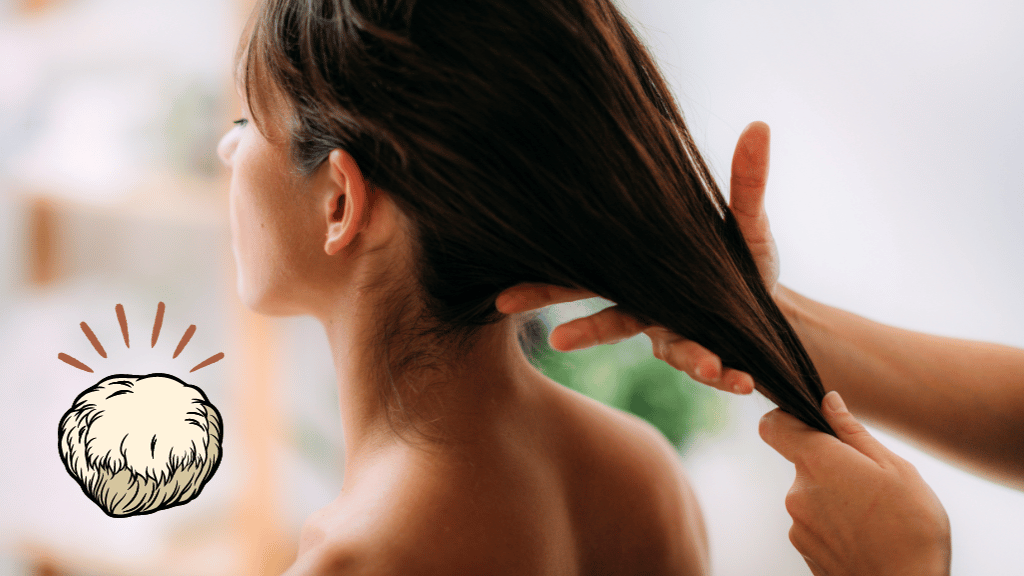
While research on the direct impact of lion's mane mushrooms on hair health is still in its early stages, there are anecdotal accounts and some preliminary evidence suggesting potential benefits. It's important to approach these findings with cautious optimism, recognizing that individual responses may vary.
1. Improved Hair Thickness and Fullness
One of the most common anecdotal reports from individuals who have incorporated lion's mane supplements into their routines is an improvement in hair thickness and fullness.
Some users claim that their hair appears to have more volume and vitality after regular use of lion's mane products.
However, it's essential to acknowledge that these experiences are subjective and may not apply universally.
2. Enhanced Scalp Health
Lion's mane mushrooms' anti-inflammatory properties may contribute to scalp health. A calm, non-irritated scalp is crucial for optimal hair growth. Some individuals report a reduction in scalp itching, flaking, or redness when using lion's mane products, which could indirectly support healthier hair.
Although lion's mane mushrooms are not considered a standalone treatment for hair loss, some users have reported a reduction in hair shedding after using lion's mane supplements.
This could be attributed to the potential anti-inflammatory effects and the promotion of scalp health, creating a more favorable environment for retaining existing hair.
4. Promotes Overall Wellbeing
It's important to remember that hair health is closely linked to general well-being. Lion's mane mushrooms are known for their potential cognitive and mood-enhancing benefits. Improved mental health and reduced stress levels may indirectly benefit hair health by mitigating factors like stress-related hair loss (telogen effluvium).
5. Holistic Approach
For individuals exploring the potential benefits of lion's mane mushrooms for hair, it's crucial to adopt a holistic approach. While these mushrooms may offer some advantages, they should be viewed as part of a broader strategy for hair care.
A balanced diet rich in essential nutrients, regular scalp care, and a healthy lifestyle can all contribute to the maintenance of healthy hair.
Can Lion's Mane Cause Hair Loss in Some People?
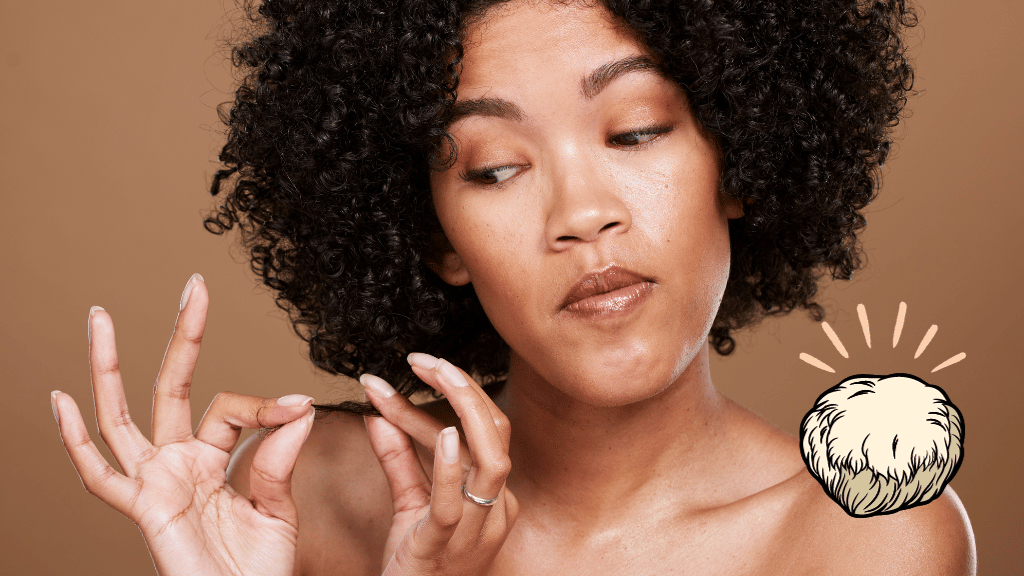
To the best of our knowledge, there is no evidence to suggest that lion's mane mushrooms - whether taken as a whole mushroom or supplement - have any direct effect on hair loss.
However, as we've stated, human research is severely limited and more research needs to be done to fully understand the benefits AND side effects of lion's mane.
Hair loss can occur due to a variety of factors, including genetics, hormonal imbalances, nutritional deficiencies, medical conditions, medications, and stress, among others.
If you suspect that a particular supplement, including lion's mane, is causing hair loss or any adverse effects, it is essential to consult with a healthcare professional. They can help identify the root cause of the issue and provide appropriate guidance.
Should I Use Topical Lion's Mane or Supplements for Hair Health?
The choice between using topical medicinal mushroom products or extract supplements for hair health can depend on your specific goals and preferences. Both approaches have their advantages, and the suitability may vary from person to person. Here's a breakdown of each option:
Topical Medicinal Mushroom Products
Advantages:
- Direct Application: Topical products, such as shampoos, conditioners, or hair oils infused with medicinal mushrooms, provide direct contact with the scalp and hair follicles.
- Targeted Benefits: They are designed specifically for addressing hair and scalp concerns, making them a focused choice for hair health.
- External Support: Topical products can help improve the condition of the scalp, reduce dandruff, and support overall scalp health.
Considerations:
- Limited Systemic Benefits: Topical products primarily provide localized benefits to the scalp and hair, and they may not offer the same systemic benefits that supplements do.
- Consistency: To see long-term results, consistent and proper use of topical products may be required.
Medicinal Mushroom Extract Supplements:
Advantages:
- Systemic Benefits: Supplements containing medicinal mushroom extracts are ingested and may offer systemic health benefits, potentially impacting hair health from the inside out.
- Convenience: Supplements are easy to incorporate into your daily routine and require no additional application or preparation.
- Comprehensive Health: Medicinal mushroom supplements can provide broader health benefits, including cognitive support, immune enhancement, and stress reduction.
Considerations:
- Indirect Scalp Benefits: While supplements can contribute to overall health, their effects on the scalp and hair may be indirect. They may not offer the same targeted benefits as topical products.
- Personal Tolerance: Some individuals may experience gastrointestinal discomfort or allergic reactions to supplements, so it's essential to monitor how your body responds.
Which Option to Choose
The choice between topical medicinal mushroom products and extract supplements for hair health largely depends on your specific needs and goals:
-
If you're primarily concerned with addressing scalp issues, reducing dandruff, or supporting localized hair health, topical products might be a suitable choice.
-
If you're looking for a more holistic approach to overall health and believe that improved internal health will benefit your hair indirectly, then medicinal mushroom extract supplements could be a better fit.
-
Some individuals opt for a combination approach, using both topical and supplement products to achieve comprehensive hair health benefits.
Ultimately, the best approach for you may involve experimentation and consultation with a healthcare professional, especially if you have underlying health conditions or specific concerns about your hair and scalp.
Additionally, it's important to choose high-quality products from reputable brands, whether topical or supplements, to ensure their effectiveness and safety.
Generally, we tend to recommend high-quality extract supplements for maximum overall health benefits.
What are the Best Lion's Mane Products for Hair Loss?
Here at Remeday, it's our goal to connect you with some of the top brands on the market. We only ever recommend products we've tried ourselves and would recommend to family and friends.
With that in mind, here are some of the best lion's mane products to try if hair health is your goal:
1. Real Mushrooms Lion's Mane Powder
Elevate your hair health with Real Mushrooms Lion's Mane Powder! Packed with natural lion's mane goodness, this premium powder offers a convenient way to support your hair's vitality. Whether you're looking to combat hair loss or simply boost your hair's radiance, Real Mushrooms delivers pure, potent lion's mane in every scoop. Don't wait – nourish your locks from within and unleash the potential for luscious, healthier hair today.
2. Life Cykel Lion's Mane Tincture
3. FreshCap Lion's Mane Capsules
Simplify your path to hair health with FreshCap Lion's Mane Capsules! These convenient capsules are a perfect addition to your daily routine. FreshCap's lion's mane capsules provide a hassle-free way to nurture your hair, promoting thickness and vitality. Whether you're on the go or seeking a straightforward solution, FreshCap has you covered. Elevate your hair care regimen and experience the beauty of healthier hair with FreshCap Lion's Mane Capsules. Also comes in powder form!
What is the Appropriate Dosage of Lion's Mane for Hair Health?
If you're looking to take lion's mane for hair health, we recommend between 500 - 1,000mg of lion's mane extract per day. You can easily add powder or tincture to your morning cup of joe!
But please remember -- there is no established standard dosage of lion's mane mushroom specifically for addressing hair loss, as scientific research on this specific use is limited.
If you're considering lion's mane or any other supplement for hair loss, it's essential to consult with a healthcare professional, such as a dermatologist or a healthcare provider with expertise in hair health.
They can provide personalized guidance based on your unique circumstances and help you determine whether lion's mane or other treatments may be suitable for your specific hair loss concerns!
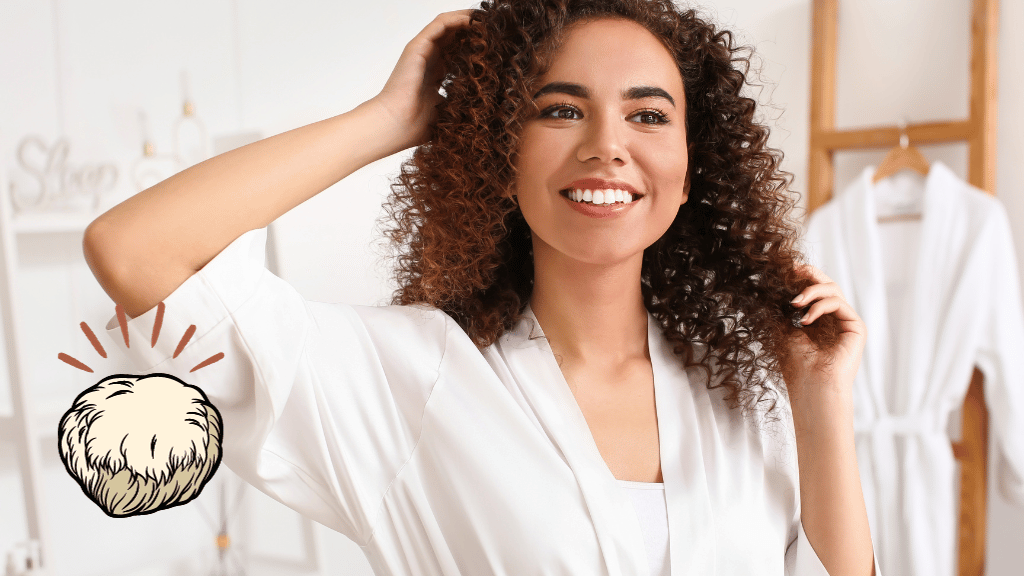
What Are the Potential Side Effects of Lion's Mane for Hair Health?
When exploring the use of lion's mane mushrooms or any supplement for hair health, it's crucial to consider potential side effects and safety precautions.
Lion's mane mushrooms are generally considered safe for most people, but individual responses can vary.
Here are some key points to keep in mind:
- Allergic Reactions: While rare, allergic reactions to lion's mane mushrooms can occur. Symptoms may include itching, skin rashes, swelling, or difficulty breathing. If you have a known allergy to mushrooms or any other food allergies, exercise caution and consult an allergist or healthcare professional before using lion's mane supplements.
- Gastrointestinal Distress: Some individuals may experience mild gastrointestinal discomfort, such as diarrhea or stomach cramps, when taking lion's mane supplements. This can often be mitigated by reducing the dosage or taking the supplement with food.
- Medication Interactions: If you are taking medications or have underlying health conditions, consult a healthcare professional before adding lion's mane supplements to your routine. There is potential for interactions with certain medications or underlying health conditions that need to be evaluated.
- Dosage and Quality: Ensure that you choose a reputable brand of lion's mane supplements, as quality can vary among products. Follow the recommended dosage on the product label, and avoid excessive consumption.
- Individual Variability: Keep in mind that individual responses to lion's mane mushrooms can differ. While some individuals may experience positive effects, others may not notice any changes. Results can also depend on factors such as the specific product used and overall health.
This is by no means a comprehensive list. And remember, research on lion's mane for hair health, specifically, is markedly lacking.
What Other Medicinal Mushrooms Can Promote Hair Health?
While lion's mane mushrooms have garnered attention for their potential benefits on hair health, there are other medicinal mushrooms that may also contribute positively to the condition of your hair. Here are a few notable mushrooms and some common combinations to consider:
1. Reishi Mushroom (Ganoderma lucidum)
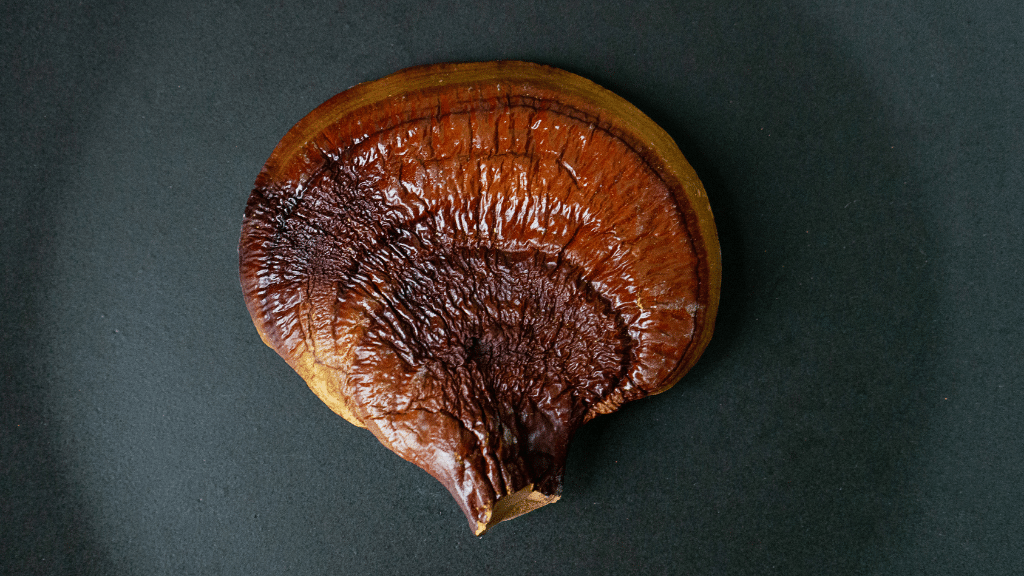
Reishi mushrooms are renowned for their adaptogenic properties, which help the body adapt to stress. They may indirectly support hair health by reducing stress levels, which can minimize stress-related hair loss.
Common Combination: Lion's mane and reishi supplements are often taken together to address both cognitive and stress-related aspects of hair health.
2. Cordyceps Mushroom (Cordyceps sinensis)
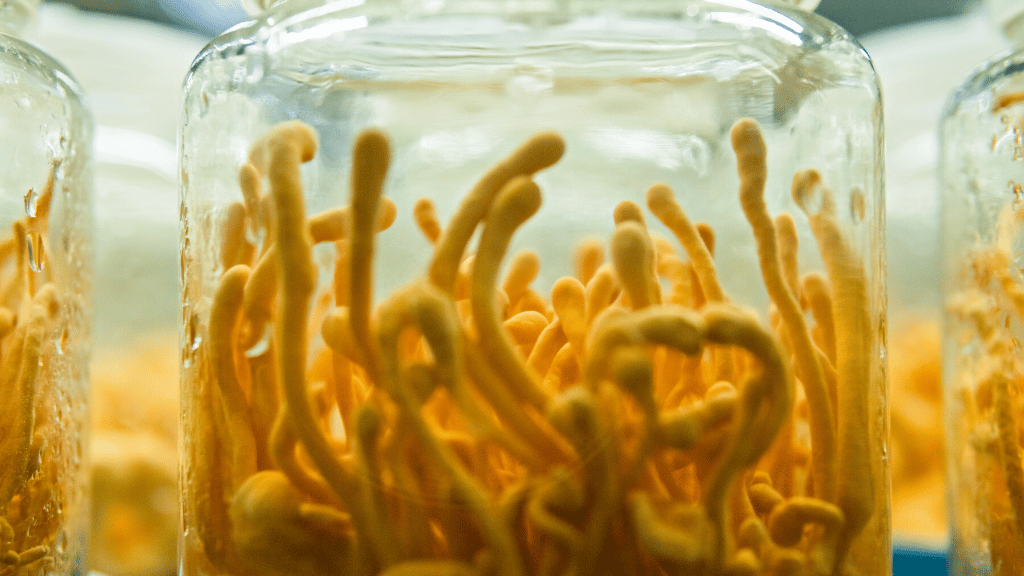
Cordyceps are known for their potential to enhance physical performance and energy levels. Improved circulation, thanks to cordyceps, can aid in the delivery of essential nutrients to hair follicles.
Common Combination: Cordyceps may be combined with lion's mane for a more comprehensive approach to hair health, especially for those seeking increased energy and vitality.
3. Shiitake Mushroom (Lentinula edodes)
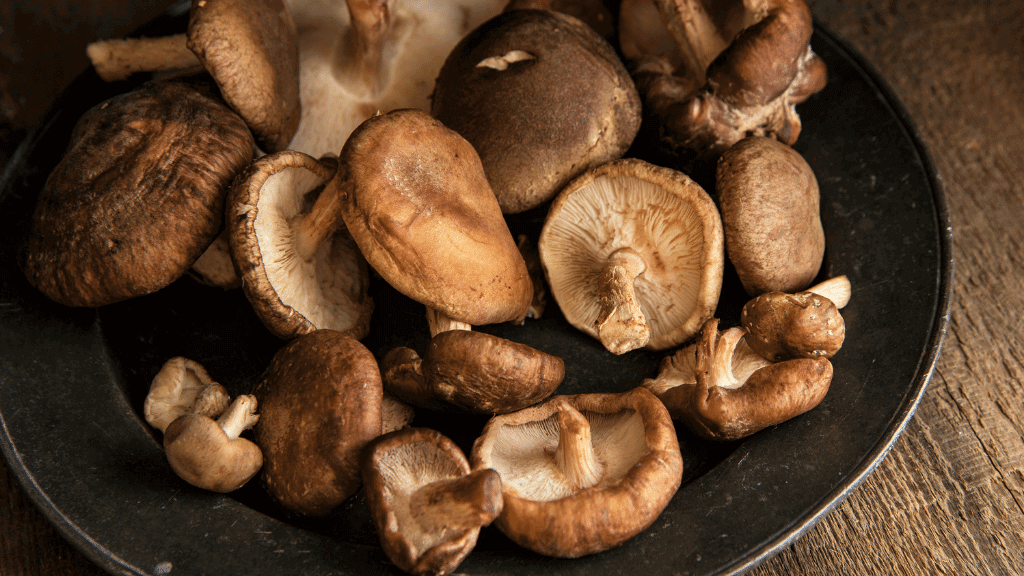
Shiitake mushrooms are rich in vitamins, minerals, and antioxidants, including copper, selenium, and vitamin D. These nutrients are essential for hair health, as they contribute to hair strength and overall shine.
Common Combination: Lion's mane and shiitake supplements may complement each other by providing a balance of cognitive support and essential nutrients for hair.
4. Maitake Mushroom (Grifola frondosa)
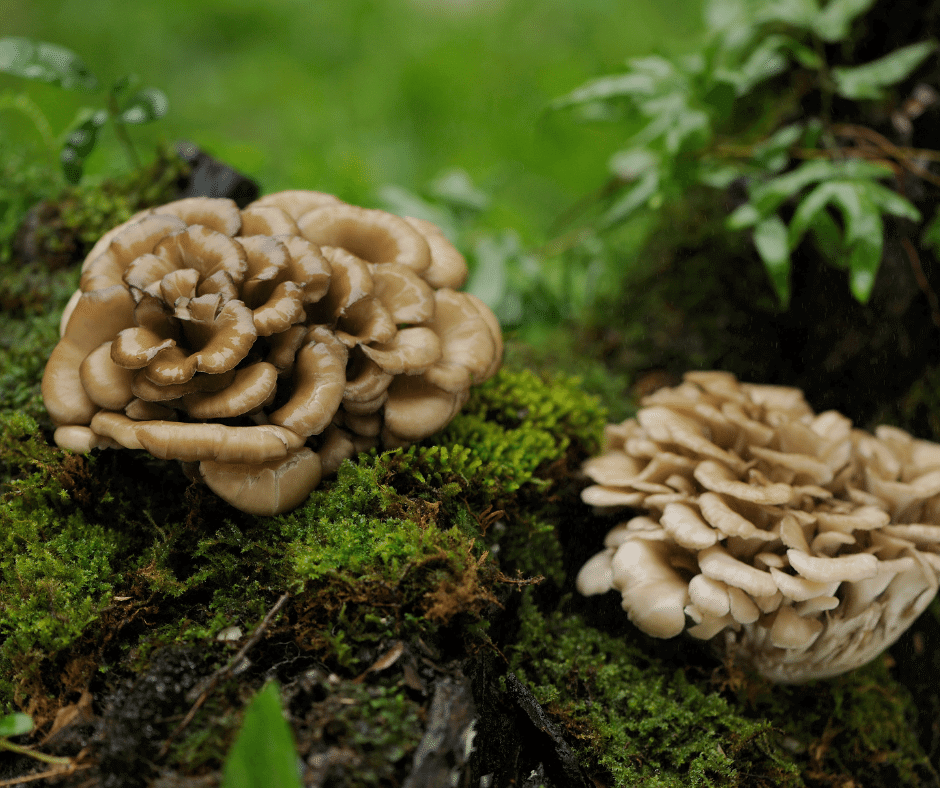
Maitake mushrooms are known for their immune-boosting properties. A healthy immune system can indirectly support hair health by preventing conditions that lead to hair loss, such as infections or autoimmune disorders.
Common Combination: Combining lion's mane and maitake supplements may promote both cognitive function and a robust immune system, indirectly benefiting hair.
5. Chaga Mushroom (Inonotus obliquus)
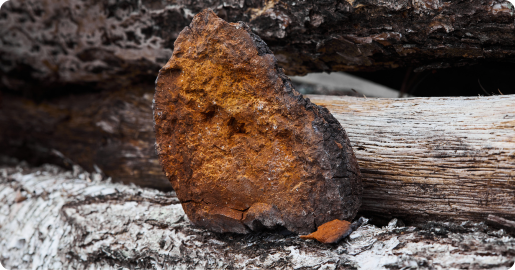
Chaga mushrooms are rich in antioxidants and may help protect hair follicles from oxidative damage. These antioxidants can contribute to healthier hair growth and reduced hair loss.
Common Combination: Lion's mane and chaga are often paired to address cognitive function and provide antioxidant support for hair health.
What Are Other Methods to Promote Healthy Hair?
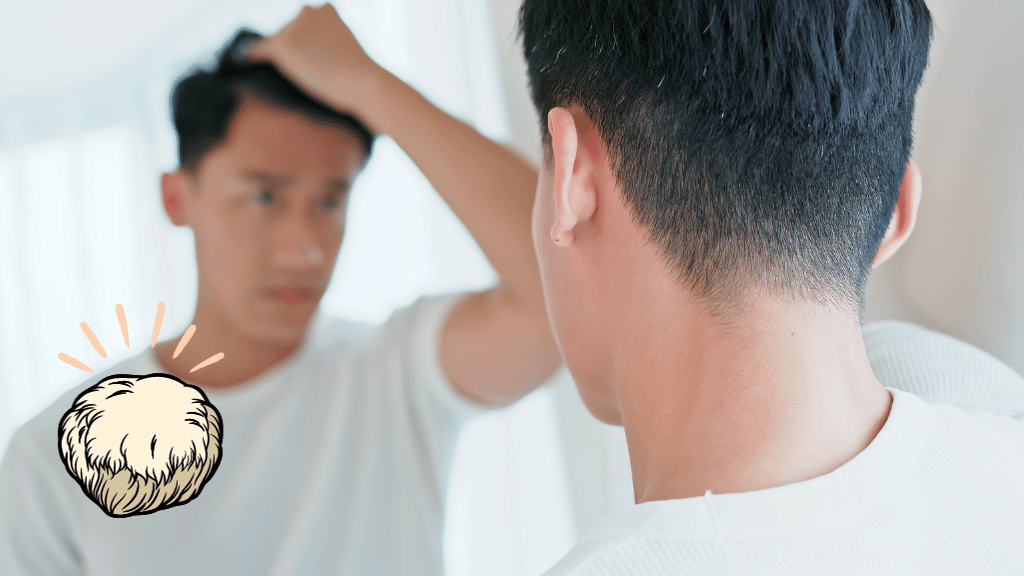
While lion's mane mushrooms and other supplements may have potential benefits for hair health, they should be viewed as part of a holistic approach to maintaining and improving the condition of your hair. Here are some essential factors to consider:
- Balanced Diet: Proper nutrition is fundamental for healthy hair. Ensure your diet includes a variety of vitamins, minerals, and protein sources, as deficiencies can lead to hair problems. Foods rich in biotin, zinc, iron, and omega-3 fatty acids are particularly beneficial for hair.
- Scalp Care: A clean and well-nourished scalp is vital for healthy hair growth. Regular, gentle shampooing and conditioning can help maintain scalp health.
- Stress Management: High levels of stress can contribute to hair loss. Incorporate stress-reduction techniques such as meditation, yoga, or deep breathing exercises into your routine.
- Lifestyle Choices: Smoking and excessive alcohol consumption can negatively impact hair health. Reducing or eliminating these habits can benefit not only your hair but your overall well-being.
- Avoid Harsh Treatments: Excessive heat styling, chemical treatments, and tight hairstyles can damage hair and lead to breakage. Use heat protectants and give your hair breaks from harsh styling practices.
- Regular Exercise: Physical activity promotes overall health, including good circulation, which can benefit hair follicles.
Want to learn more about lion's mane mushrooms? Head on over to our free lion's mane learning center.






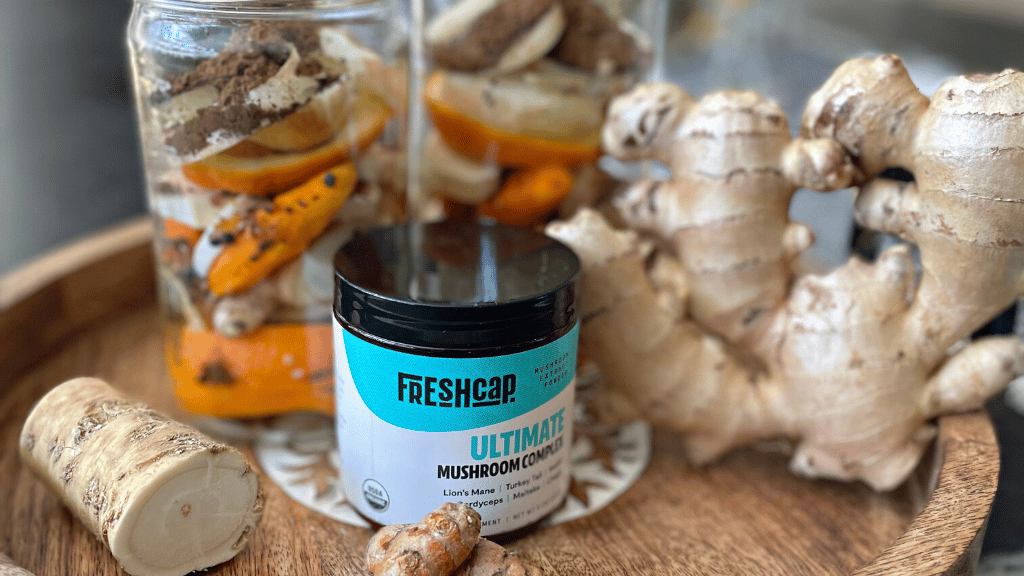
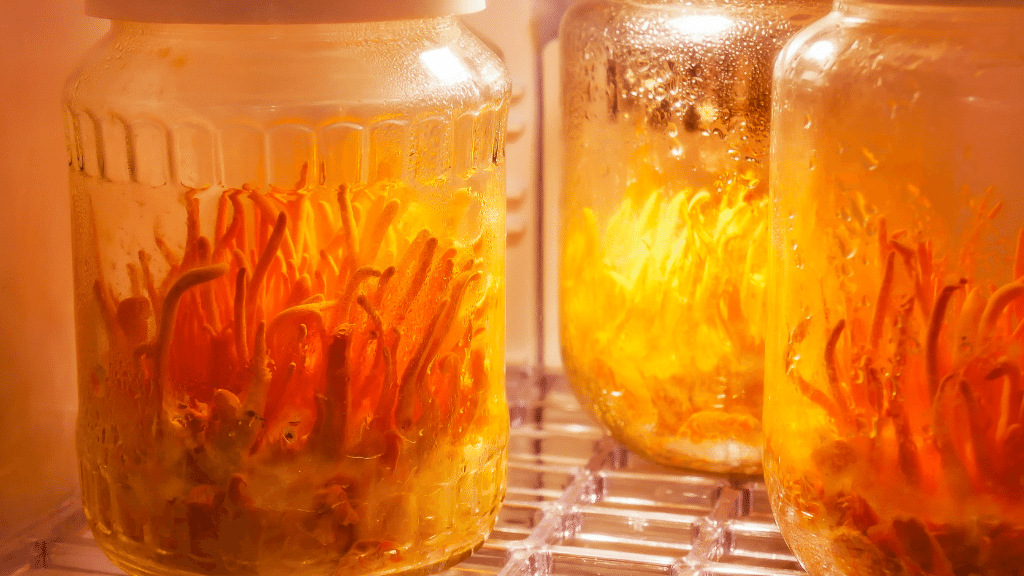


.png)
